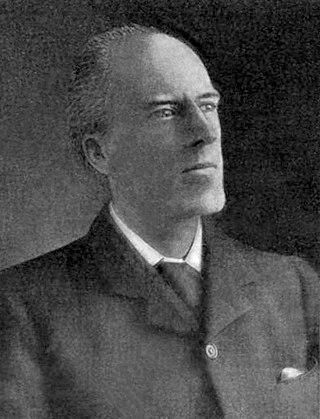
Karl Pearson was an English eugenicist, mathematician, and biostatistician. He has been credited with establishing the discipline of mathematical statistics. He founded the world's first university statistics department at University College London in 1911, and contributed significantly to the field of biometrics and meteorology. Pearson was also a proponent of Social Darwinism and eugenics, and his thought is an example of what is today described as scientific racism. Pearson was a protégé and biographer of Sir Francis Galton. He edited and completed both William Kingdon Clifford's Common Sense of the Exact Sciences (1885) and Isaac Todhunter's History of the Theory of Elasticity, Vol. 1 (1886–1893) and Vol. 2 (1893), following their deaths.
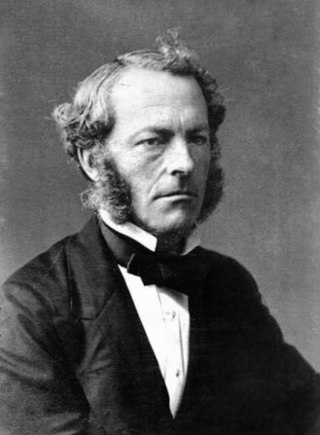
Sir George Gabriel Stokes, 1st Baronet, was an Irish physicist and mathematician. Born in County Sligo, Ireland, Stokes spent all of his career at the University of Cambridge, where he was the Lucasian Professor of Mathematics from 1849 until his death in 1903. As a physicist, Stokes made seminal contributions to fluid mechanics, including the Navier–Stokes equations; and to physical optics, with notable works on polarization and fluorescence. As a mathematician, he popularised "Stokes' theorem" in vector calculus and contributed to the theory of asymptotic expansions. Stokes, along with Felix Hoppe-Seyler, first demonstrated the oxygen transport function of haemoglobin, and showed colour changes produced by the aeration of haemoglobin solutions.

John Venn, FRS, FSA was an English mathematician, logician and philosopher noted for introducing Venn diagrams, which are used in logic, set theory, probability, statistics, and computer science. In 1866, Venn published The Logic of Chance, a groundbreaking book which espoused the frequency theory of probability, arguing that probability should be determined by how often something is forecast to occur as opposed to "educated" assumptions. Venn then further developed George Boole's theories in the 1881 work Symbolic Logic, where he highlighted what would become known as Venn diagrams.
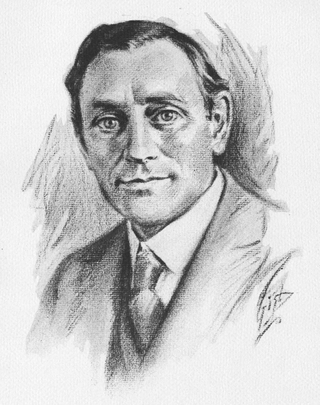
Harry Bateman FRS was an English mathematician with a specialty in differential equations of mathematical physics. With Ebenezer Cunningham, he expanded the views of spacetime symmetry of Lorentz and Poincare to a more expansive conformal group of spacetime leaving Maxwell's equations invariant. Moving to the US, he obtained a Ph.D. in geometry with Frank Morley and became a professor of mathematics at California Institute of Technology. There he taught fluid dynamics to students going into aerodynamics with Theodore von Karman. Bateman made a broad survey of applied differential equations in his Gibbs Lecture in 1943 titled, "The control of an elastic fluid".
The Edinburgh Mathematical Society is a mathematical society for academics in Scotland.
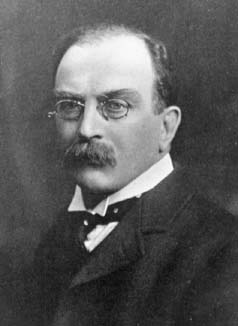
Sir Joseph Larmor was an Irish and British physicist and mathematician who made breakthroughs in the understanding of electricity, dynamics, thermodynamics, and the electron theory of matter. His most influential work was Aether and Matter, a theoretical physics book published in 1900.
Proceedings of the Royal Society is the main research journal of the Royal Society. The journal began in 1831 and was split into two series in 1905:
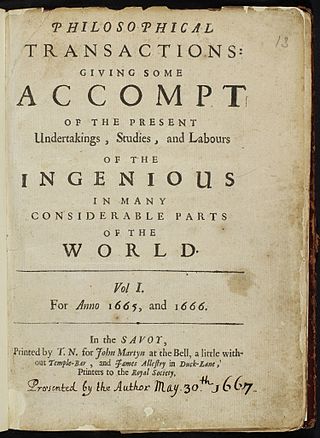
Philosophical Transactions of the Royal Society is a scientific journal published by the Royal Society. In its earliest days, it was a private venture of the Royal Society's secretary. It was established in 1665, making it the second journal in the world exclusively devoted to science, after the Journal des sçavans, and therefore also the world's longest-running scientific journal. It became an official society publication in 1752. The use of the word philosophical in the title refers to natural philosophy, which was the equivalent of what would now be generally called science.

The Cambridge Philosophical Society (CPS) is a scientific society at the University of Cambridge. It was founded in 1819. The name derives from the medieval use of the word philosophy to denote any research undertaken outside the fields of law, theology and medicine. The society was granted a royal charter by King William IV in 1832. The society is governed by an elected council of senior academics, which is chaired by the Society's President, according to a set of statutes.
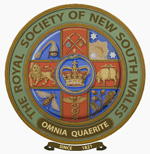
The Royal Society of New South Wales is a learned society based in Sydney, Australia. The Governor of New South Wales is the vice-regal patron of the Society. It is the oldest learned society in the Southern Hemisphere.

A rattleback is a semi-ellipsoidal top which will rotate on its axis in a preferred direction. If spun in the opposite direction, it becomes unstable, "rattles" to a stop and reverses its spin to the preferred direction.
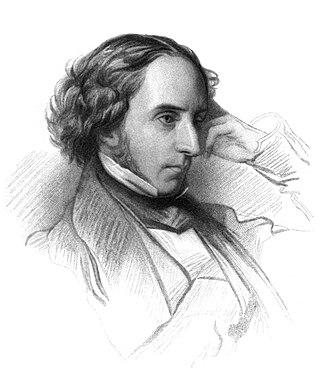
Robert Leslie Ellis was an English polymath, remembered principally as a mathematician and editor of the works of Francis Bacon.
Proceedings of the American Philosophical Society is a quarterly journal published by the American Philosophical Society since 1838. The journal contains papers which have been read at meetings of the American Philosophical Society each April and November, independent essays sent to the APS by outside scholars, and biographical memoirs of APS Members.

Philosophical Transactions of the Royal Society B: Biological Sciences is a biweekly peer-reviewed scientific journal published by the Royal Society. The editor-in-chief is Richard Dixon (UNT).

Philosophical Transactions of the Royal Society A: Mathematical, Physical and Engineering Sciences is a fortnightly peer-reviewed scientific journal published by the Royal Society. It publishes original research and review content in a wide range of physical scientific disciplines. Articles can be accessed online a few months prior to the printed journal. All articles become freely accessible two years after their publication date. The current editor-in-chief is John Dainton.
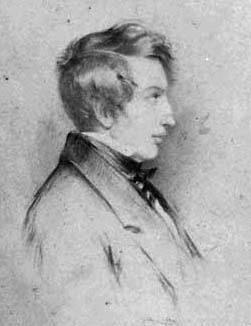
Duncan Farquharson Gregory was a Scottish mathematician.
Lee Albert Rubel was a mathematician known for his contributions to analog computing.
Patrick Michael Grundy was an English mathematician and statistician. He was one of the eponymous co-discoverers of the Sprague–Grundy function and its application to the analysis of a wide class of combinatorial games.
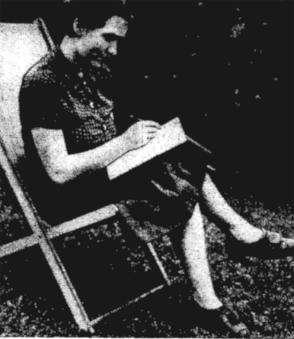
Rosa Margaret Morris was a Welsh applied mathematician, working in potential theory and aerodynamics. When she was 23, her research and examination results made national news. In her later career, she taught at the University College of South Wales and Monmouthshire, where she co-authored a successful textbook on Mathematical Methods of Physics and became one of the first female Heads of School of Mathematics in the United Kingdom.
John Kenneth Truss is a mathematician and emeritus professor of pure mathematics at the University of Leeds where he specialises in mathematical logic, infinite permutation groups, homogeneous structures and model theory. Truss began his career as a junior research fellow at the University of Oxford before holding a series of academic positions and lastly joining the University of Leeds. He has written books on discrete mathematics (1991) and mathematical analysis (1997) and was co-editor in chief of the Journal of the London Mathematical Society until June 2003. He is the father of the former Prime Minister of the United Kingdom, Liz Truss.













